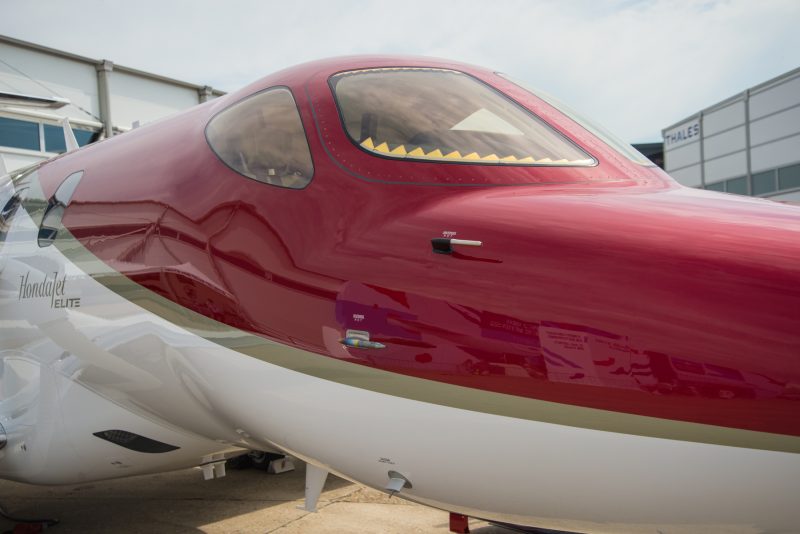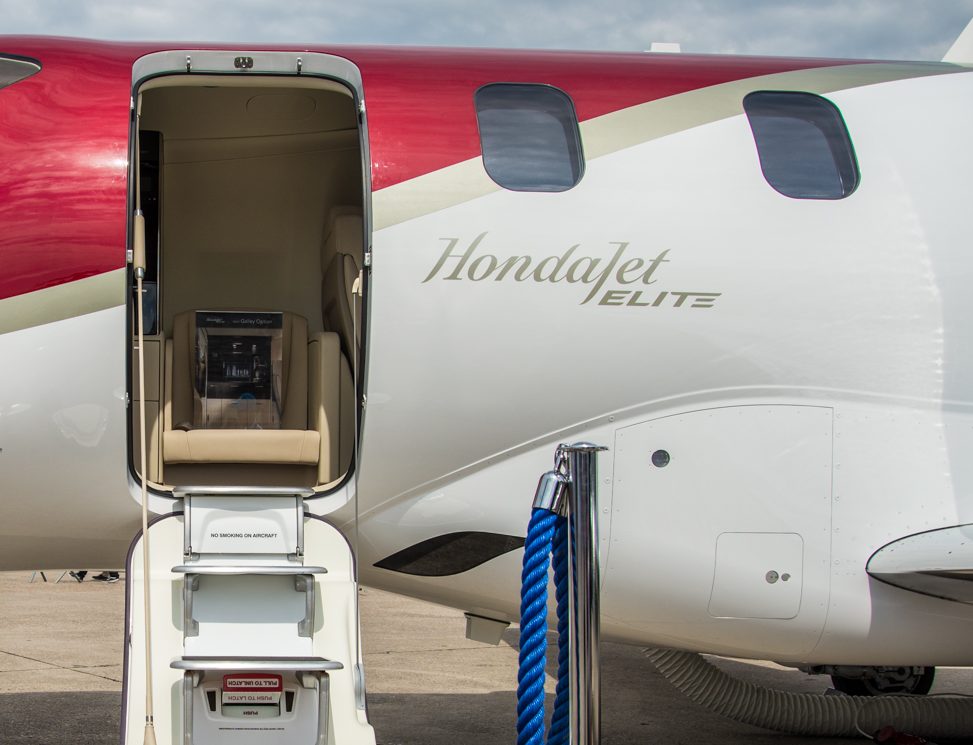- Honda’s private jet starts at $5.3 million, one of the cheapest prices on the market.
- It promises a quiet, luxurious, adjustable interior and efficient fuel consumption.
- We took a look inside. Here’s what the jet is like.
- Visit Business Insider’s homepage for more stories.
Honda unveiled its HondaJet Elite in 2018, aiming to provide a luxurious experience that’s also relatively affordable.
Starting at just over $5 million, the Elite is an updated version of its private jet, which was Honda’s first foray into aviation and the product of 30 years of research.
We checked out one of the Elite jets at the Paris Air Show and saw that while the jet is small and fairly basic, it’s a perfect option for the cheaper end of the private-jet market.
Here's what the HondaJet Elite is like:
The HondaJet Elite has a range of 1,650 miles (2,655 kilometers) and can cruise at up to 43,000 feet.
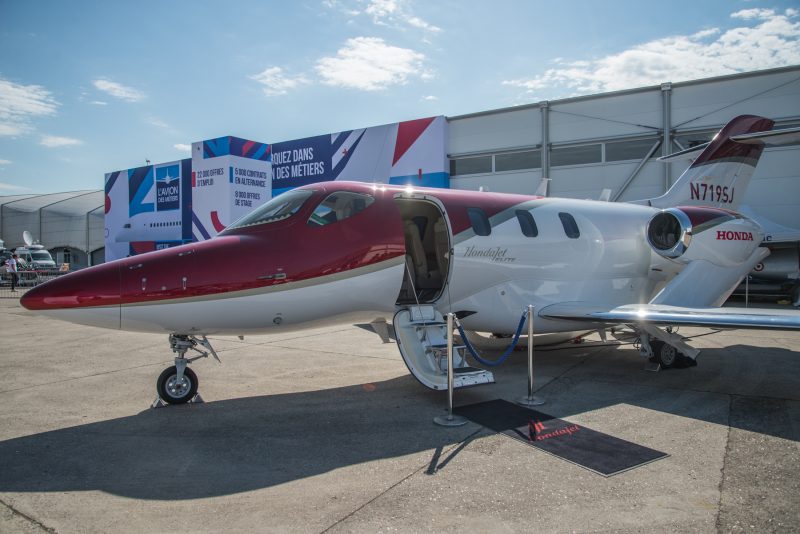
The jet's door converts into stairs for easy boarding.
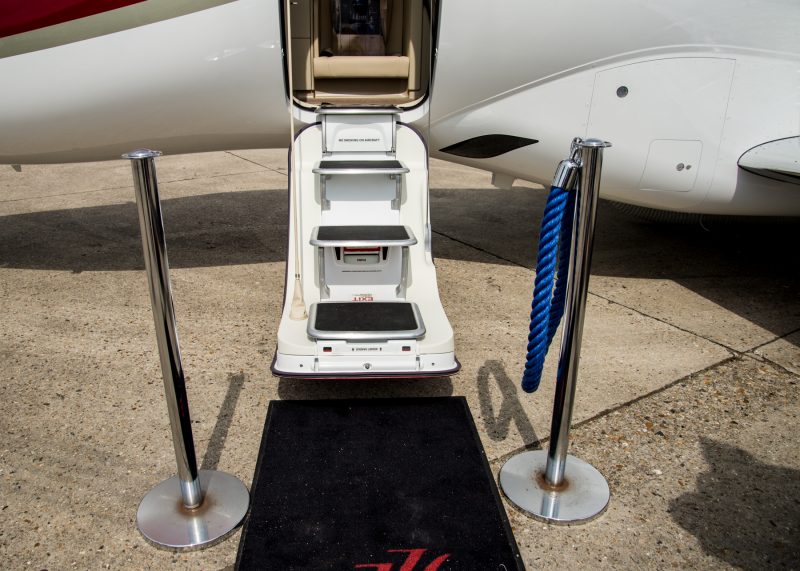
Two leather seats face you when you climb aboard ...
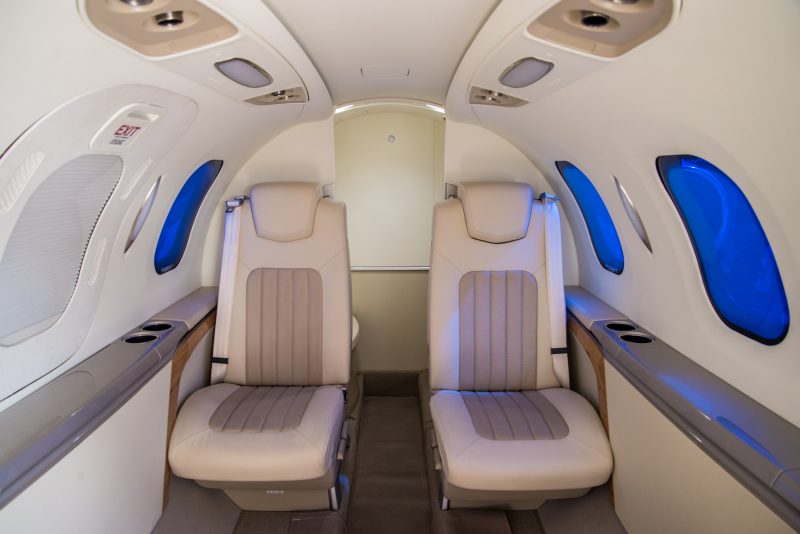
The cabin is 4.8 feet tall, so you may have to crouch a bit.
The cabin is also 5 feet across and 17.8 feet long.
The plane can seat up to seven people, including the seats in the cockpit.
... and two more when you look back toward the entrance. You can also see another seat behind these chairs that faces you when you board the jet.
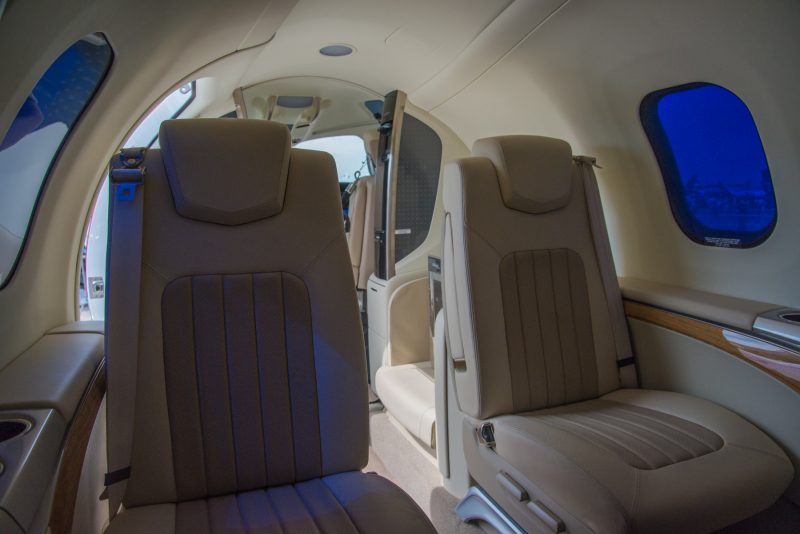
The side-facing seat opposite the door can also be replaced with a galley kitchen.
The space between the seats is generous, and each seat has a window (which was tinted blue at the Paris Air Show but can also be clear glass). You can pull a table out of the armrest area under the window.
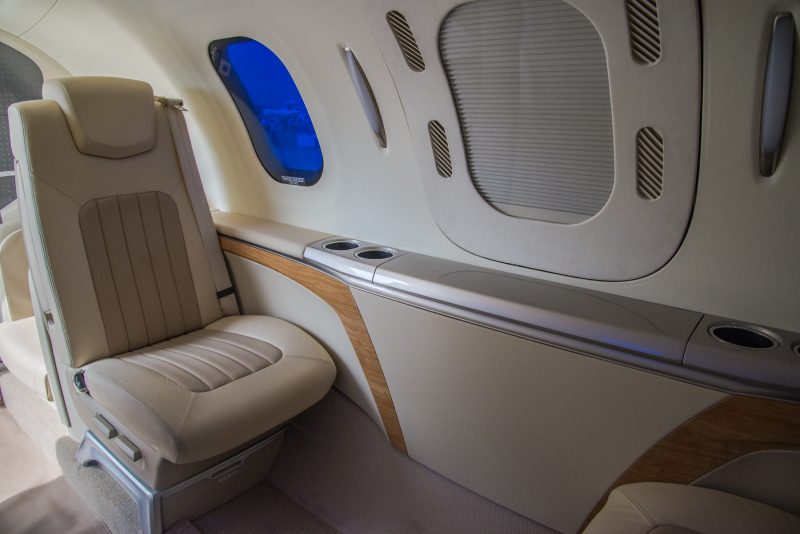
An optional feature is the ability to use your phone to alter the cabin's audio, lighting, and temperature, as well as the window shades.
The cabin is filled with small details, like these handy cupholders.
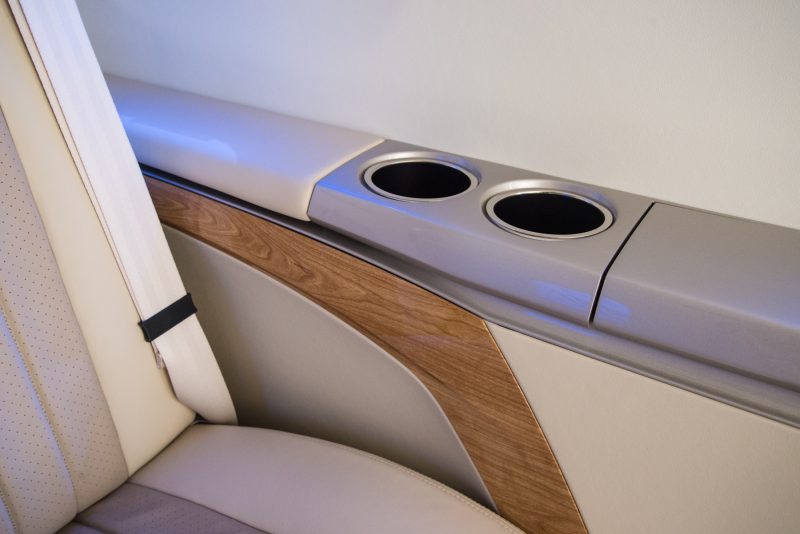
There is a bathroom at the back behind a sliding door, and you can even belt yourself into the toilet. Many small private jets don't have toilets, so this is a major perk for the HondaJet.
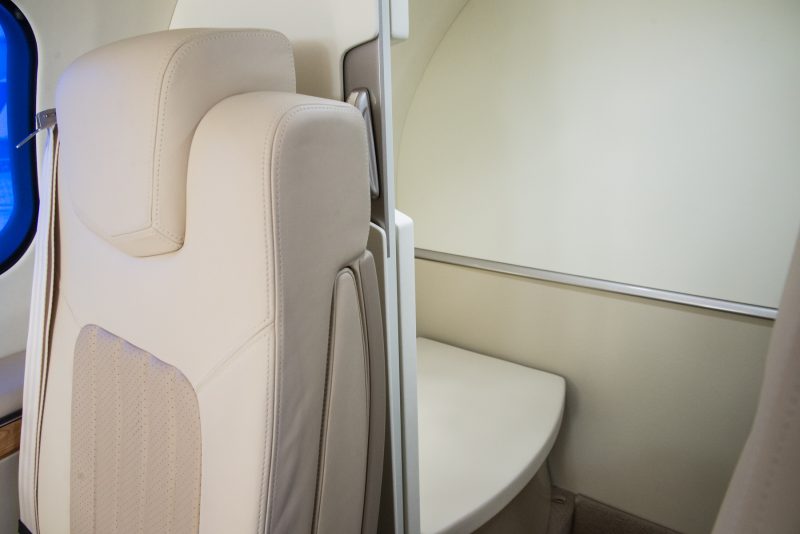
There's even a sink with running water.
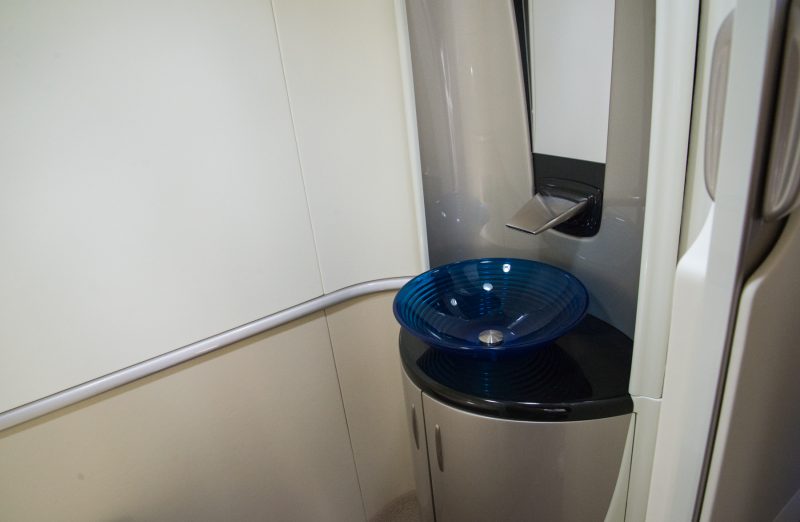
Lights in the bathroom, between the numerous windows, and on the ceiling keep the interior bright.
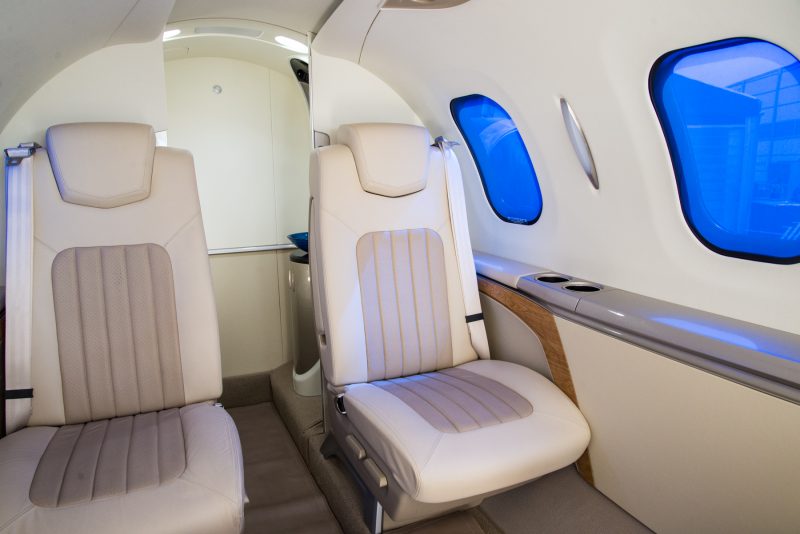
The seats are also fully adjustable, so you can move them closer together and into the aisle.
A larger window between the chairs offers better views when open, as well as serves as an emergency exit.
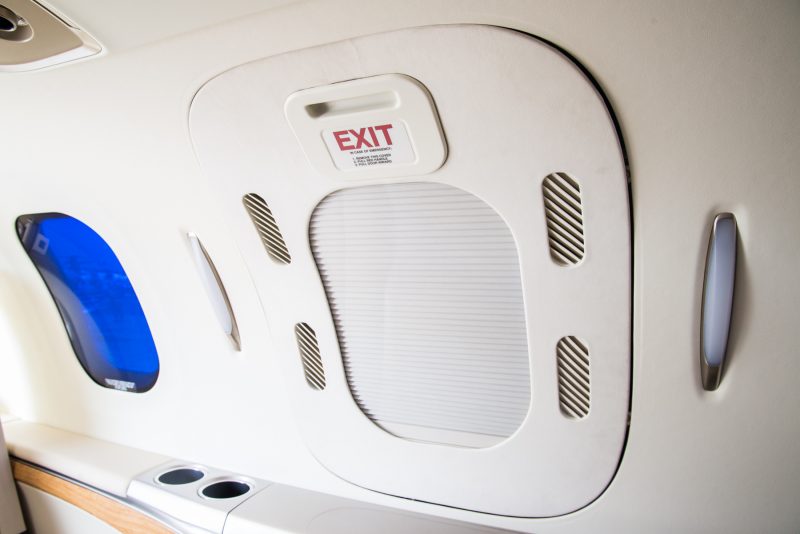
The cockpit has two seats for pilots but is designed so that it could be flown by just one, leaving the other seat available for a passenger.
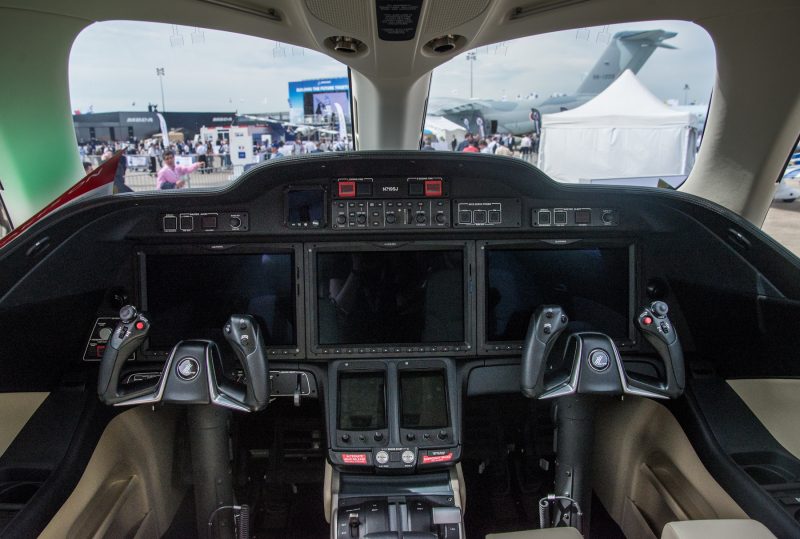
The cockpit uses Garmin technology, and Honda says its 14-inch display touchscreen controls "offer enhanced navigation, flight planning, and control."
The engines are mounted over the wings — an unusual step that Honda says makes for a quieter and more spacious cabin, as well as more fuel efficiency.
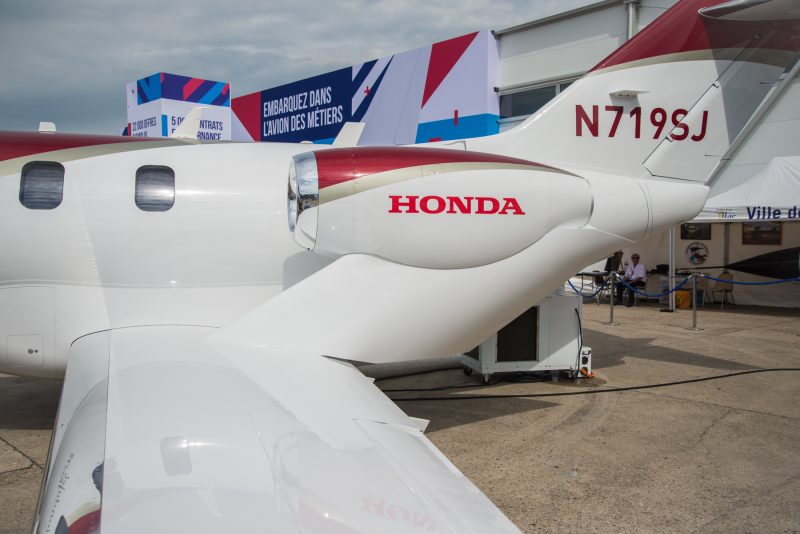
The jet uses a carbon-composite airframe instead of aluminum. It's designed to be stronger and lighter, and Honda promises "increased cabin space, better performance, and greater fuel efficiency" as a result.
The plane has a long nose, designed to reduce air drag and increase fuel efficiency.
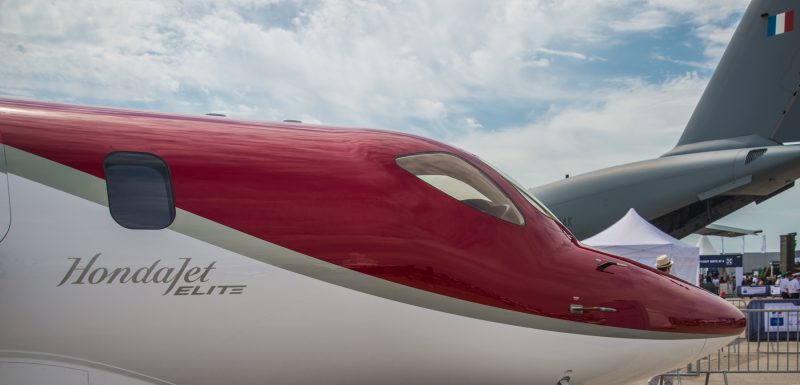
This plane is the "Ruby Red" color. It also comes in "Ice Blue" and "Monarch Orange."
